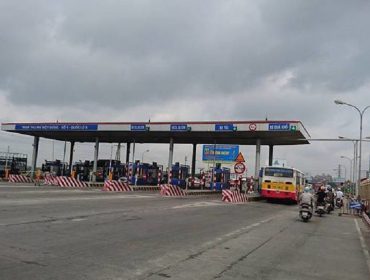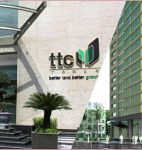Hotline:
(+84) 898 898 688Director of Savills Hanoi: Bitcoin may be pointless but blockchain is not
The limitations of Bitcoin and other virtual currencies do not mean that blockchain-based technology is of no practical value, says Matthew Powell, director of Savills Hanoi.
Difficult to use Bitcoin to buy real estate
Matthew Powell gives an example: Imagine, by early 2018, you sell real estate for $ 10 million and accept payment by Bitcoin.

Matthew Powell, Director of Savills Hanoi
Suppose that $ 10 was sent to you on January 6, 1818, when a Bitcoin worth $ 17,135.84. If you do not use it before Tuesday, your value has dropped by 16%.
If you wait another week, the value of the money has fallen by 55%. And of course, if your real estate transaction happened exactly 1 year ago (2017), your $ 10 million bitcoin would have ‘converted’ to more than $ 200 million by the end of 2017.
“Real estate trading is good or not nearly as important as the volatility of such a large currency. At present, the value of virtual currency is too unstable to be used as a cumulative value-added investment channel, “Matthew Powell said.
In June, the Bank for International Settlements (BIS) said that virtual currency will never become a suitable alternative to traditional currencies because of volatility, ease of manipulation and cheating. The money is also damaging to the environment because bitcoin digging is currently using the same amount of power as the electricity consumption of the whole country of Switzerland.
Bitcoins may be meaningless but blockchain is not
Although Bitcoin and other virtual currencies have too many limitations, that does not mean that blockchain-based technology is not practical. With real estate, Matthew Powell said that blockchain has some potential applications.
Specifically, blockchain allows information related to a transaction chain to be recorded and distributed on a network of computers (also known as nodes). Blockchain creates digital logs that can be shared across the network, so there is transparency, which can be updated quickly and is difficult to hack.
Blockchain also removes the role of transaction approval and identity verification of the central office by transaction logs saved on a network. This makes blockchain technology more difficult to counterfeit.
“The benefit that blockchain gives to the real estate industry is enormous because the verification of ownership and real estate transaction confirmation can be made in a moment. This is especially important for developing Asian markets where securing real estate property is a thorny issue for investors, “said Matthew Powell.
The director of Savills Hanoi is also optimistic that the information on land registration is incomplete and not up to date, but remains a matter of the past, even if at present blockchain is still a distant market. Vietnamese real estate.
“The nature of real estate transactions is of great value, so it usually takes time, costs and paperwork to complete. This creates a problem of liquidity and transparency of the real estate market.
“Blockchain has the potential to change the way it is: by digitizing transactions, it minimizes time and costs and increases transparency and security. While global blockchain application is still at an early stage, I believe Vietnam has the potential to quickly catch up with the trend of the world, “said Powell.
You are reading the article Director of Savills Hanoi: Bitcoin may be pointless but blockchain is not in the Real Estate category at https://realestatevietnam.com.vn/. Any information sharing, feedback please contact through Hotline (+84) 898 898 688 (24/7) or email to contact.vietnamrealestate@gmail.com.
Special thanks!









































